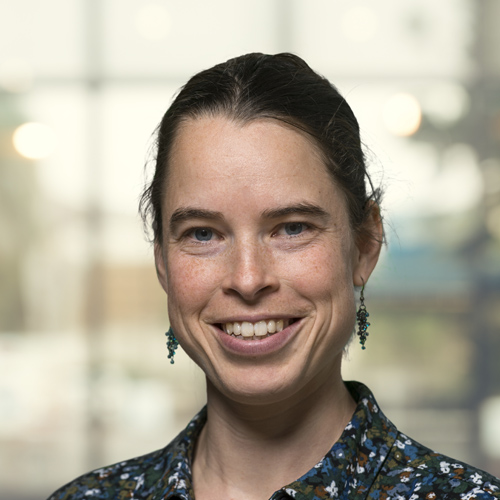
Joanne Donkers

Joanne Donkers is a scientist in the Metabolic Health Research expertise group. During her PhD, she missed the applicability of her research. That is why she ended up at TNO.
‘At Metabolic Health Research, we work on improving research into the effectiveness and safety of interventions with drugs or food. My team specialises in human cell biology. We work with ex-vivo organ models to study how organs such as the intestine and liver absorb and process medicine and food.
I did my PhD at the Amsterdam Medical Centre in the department of gastroenterology and hepatology. There I studied how bile salt absorption by the liver can be blocked and how this can influence metabolism, which may lead to a new treatment for obesity and type 2 diabetes. The research I do at TNO touches on this, but is much broader.’
Intestinal Explant Barrier Chip
‘75 per cent of our research is commissioned by or in collaboration with industry, the rest is in-house research. For example, we have developed organ-on-a-chip technology here that allows us to keep intestinal tissue alive outside the body. This allows us to test drugs or food ingredients and investigate disease processes. We use our Intestinal Explant Barrier Chip model to conduct studies with industry on improving gut health.
Meanwhile, we are exploring what else we can do with the model, together with our colleagues from Microbiology & Systems Biology and industry. There is a need for a model that can predict host-microbiome interactions, including the immune response. We are getting more and more orders for this.
I am also working on a set-up that allows us to mimic the interface between the deoxygenated environment on the inside of the gut and the oxygenated environment on the blood vessel side in the lab. We have a patent application pending on this challenging technology.’
Variety
‘Within our team, I am mainly involved in the research process. I make plans and calculations, analyse the results and communicate them. I also shape follow-up research. I would like to seek more links with other departments or external researchers to come up with even more applications for our technology. Now I mainly focus on the effect of food ingredients and drugs on health, but you can also think about the absorption of toxins or microplastics.’
Personalised medicine
‘I find it important that my work has social impact. That’s why I joined TNO. Our research leads to new insights for the food industry and medicine development. Through our cooperation with companies, those scientific insights also get an immediate application.
In the future, it should be possible, for example, to predict which medicine and food will suit a person best based on their gut tissue. Personalised medicine, that's where we want to go. With the Intestinal Explant Barrier Chip, we are getting closer step by step.’
Leiden - Sylviusweg
Sylviusweg 71
2333 BE Leiden
The Netherlands